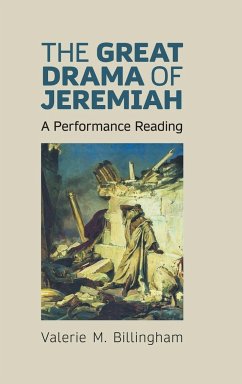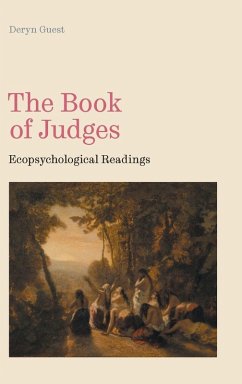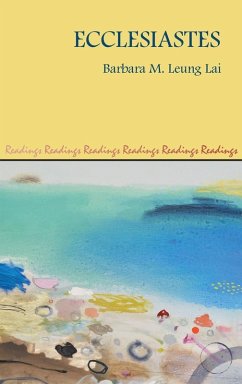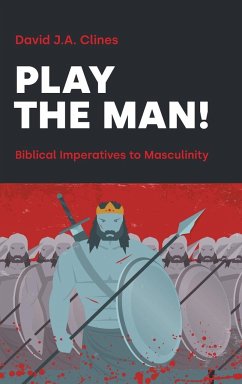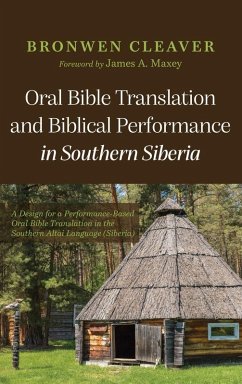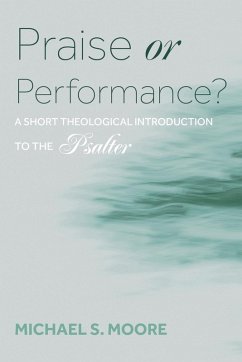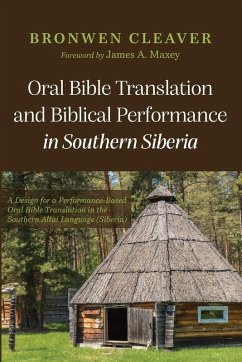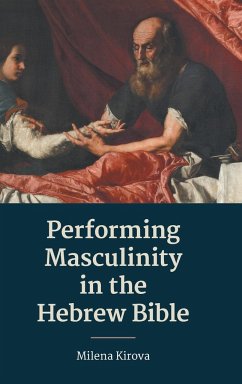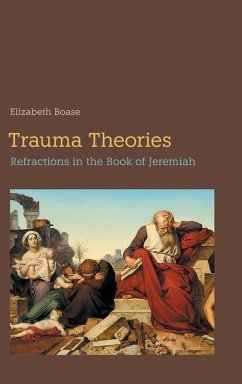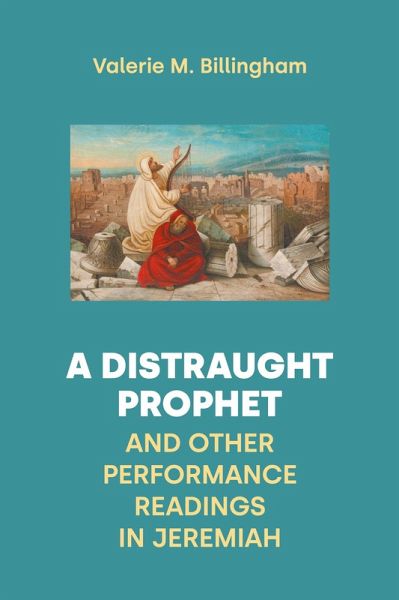
A Distraught Prophet and Other Performance Readings in Jeremiah
Versandkostenfrei!
Versandfertig in 1-2 Wochen
79,99 €
inkl. MwSt.

PAYBACK Punkte
40 °P sammeln!
Continuing the theme of Valerie M Billingham's, The Great Drama of Jeremiah: A Performance Reading which addresses eleven scenes in Jer 1-19, Billingham presents a performance reading of nine further scenes from chs. 20-32. In a synchronic reading, she undertakes rhetorical analyses of her own translations of the Masoretic Text, noting repetitions, chiastic structures, parallelism, alliteration and assonance that add impact to the messages. She analyses each scene according to their actors, audience, settings (geographical and socio-political), and improvisation of traditional scripts. Employi...
Continuing the theme of Valerie M Billingham's, The Great Drama of Jeremiah: A Performance Reading which addresses eleven scenes in Jer 1-19, Billingham presents a performance reading of nine further scenes from chs. 20-32. In a synchronic reading, she undertakes rhetorical analyses of her own translations of the Masoretic Text, noting repetitions, chiastic structures, parallelism, alliteration and assonance that add impact to the messages. She analyses each scene according to their actors, audience, settings (geographical and socio-political), and improvisation of traditional scripts. Employing the Earth Bible Team's six Eco-justice Principles, she attends to the voices of Earth and members of the Earth community as they express their distress at the Babylonian invasion of Judah, and rejoice at the prospect of the exiles' return. With the exilic community suffering Post Traumatic Stress, she argues that Jeremiah presents a manual that offers healing and restoration. Acknowledging performance as a worthy pursuit, Billingham provides helpful groundwork for engaging with texts in order to produce scripts for acting. The performances presented include Jeremiah's distress at Yhwh's apparent deception and coercion regarding his prophetic vocation. The kings are the problem in Judah, provoking Yhwh's judgment, but plans to appoint an ideal leader who will rule according to the covenantal qualities of wisdom, justice and righteousness. Two baskets of figs represent the exilic community and those who remain in Judah. In a twist, the good figs are identified as the suffering exiles, and the bad figs are those who avoided deportation. In a heated clash over the severity and duration of exile, yokes are smashed and Jeremiah is declared to be the true prophet of Yhwh. Jeremiah purchases his uncle's block of land. An ecological reading presents the field as a silent symbol of hope for the exilic community. It represents all the other fields that will be restored to the rightful families of the returning exiles.



